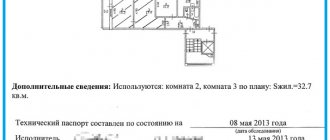Those who have already purchased their own house in a village or holiday village know that you need to choose not only a plot, but also neighbors.
After all, sometimes an old woman who looks like a harmless dandelion can turn out to be an enthusiastic scoundrel, and a neighbor who promises to look after your site in the absence of the owners may take away a couple of dozen bricks that are unclaimed, in his opinion, as a reward.
Often, neighbors believe that since you have purchased a plot of land and have just arrived in a new place, then you must adapt to those around you and agree with everything. Of course, you cannot indulge everyone without exception to the detriment of your own interests. However, if you want to live in peace and avoid clashes with neighbors, it may be worth paying attention to the most common causes of conflicts and adjusting your behavior. After all, objectively speaking, you, without wanting it yourself, may well become a source of stress for your neighbors.
Seven most common problems with neighbors and simple ways to solve them
It’s good if you are lucky with your neighbors, if the neighboring apartments are always quiet and smooth, and God’s grace. But, alas, this does not always happen
Photo: Victor GUSEINOV
It’s good if you are lucky with your neighbors, if the neighboring apartments are always quiet and smooth, and God’s grace. But, alas, this is not always the case. Here are the most common reasons for swearing. As well as useful articles that you can refer to when disassembling.
1. Noise and din, and a column of dust.
Most of us have encountered a situation where our “beloved” neighbors decide to throw a noisy party or make repairs at the wrong time.
When they can do everything:
Neighbors have the right to make noise only from 7.00 to 23.00, since this time is not night time (Article 1 of the Moscow Law of July 12, 2002 N 42 On maintaining the peace of citizens and silence at night in the city of Moscow).
For noise at other times of the day or night, you have the right to hold them accountable.
What is the penalty for violation:
Violating silence at night is an administrative offense for which punishment is provided in accordance with Article 3.13 of the Code of Administrative Offenses of Moscow: a fine of 1,000 to 2,000 rubles.
In order for noisy neighbors to behave more quietly, call the police and demand that they draw up a report on an administrative violation.
2. “The hostel is listening!”
The neighbor's apartment is rented out as a natural dormitory. Well, or the tenants are simply very noisy and are now actively disturbing your life. Is there a way to fix this?
When they can do everything:
If the apartment is rented in accordance with the established procedure, the landlord regularly pays taxes and even registered the tenants. But this still does not give them the right to make noise at night.
What is the penalty for violation:
Article 3.13: In case of violation of peace and quiet at night, administrative liability is provided in the form of a warning or a fine in the amount of 1,000 to 2,000 rubles.
Code of the Russian Federation on Administrative Offenses, Article 18.9: Providing residential premises to a foreign citizen in the Russian Federation in violation of the established procedure - a fine of 2,000 to 4,000 rubles.
Also, when using apartments as hotel rooms, there is an excessive load on the elevator and cleaning staff, whom the owner pays at the approved rate.
When renting out your apartment, you need to pay tax, but many neighbors neglect this. Then you can influence them using clause 1 of Art. 122 of the Tax Code of the Russian Federation, non-payment or incomplete payment of tax amounts (fees) - a fine of 20% of the unpaid tax amount.
3. “And my loneliness is brightened up by my seven cats...”
Out of loneliness, your neighbor got a bunch of cats that smelled all over the entrance and soon this smell will reach your apartment? Does your neighbor’s dog periodically not reach the street, splashing your door?
Can they do anything?
No matter how it is, it is not cats who rule the world, but laws.
What is the penalty for violation:
The specifics of keeping animals in an apartment are not directly regulated by federal legislation. However, it is necessary to use the apartment for its intended purpose, respect the rights and obligations of neighbors, this is written in Part 4 of Art. 30 of the Housing Code of the Russian Federation.
The Code of Administrative Offenses provides for the following liability for unscrupulous animal owners:
+ If pets are kept in common areas of apartment buildings - a warning or a fine of 1,000 to 2,000 rubles.
+ If an animal dirty the elevator, stairs and other common areas of the house - a fine of 1000 to 2000 rubles.
+ If a dog or cat is not registered and not vaccinated - a fine from 2000 to 6000 rubles.
4. At least we have a flood!
Are your upstairs neighbors flooded and don’t want to compensate for the cost of repairs? How can you hold them accountable and force them to pay for all the expenses you incur?
When they can do everything: but never.
What is the penalty for violation:
If your apartment or property in the apartment was damaged as a result of flooding (fire), you have the right to count on full compensation for the damage caused: clause 1 of Art. 1064 of the Civil Code of the Russian Federation. The main thing is to take the following steps:
+ Notify the management organization about the incident and ask them to draw up a flood report for the apartment. Before contacting the management organization, it is advisable to take photographs of the damage caused.
+ Having determined the amount of damage caused, you can offer the perpetrator to compensate it voluntarily, for which a written agreement must be drawn up.
+ In case of refusal, contact an independent appraiser to conclude an agreement to assess property damage. Not later than three days before the inspection, notify the person at fault about the inspection of the apartment. Based on the results of the inspection, the appraiser will prepare a conclusion on the amount of damage caused due to flooding of the apartment.
+ If the guilty party still refuses to settle the dispute, prepare a statement of claim to the court. It is necessary to draw up a statement of claim and attach the following documents to it:
— certificate of ownership of the apartment;
— certificate of flooding of the apartment;
— conclusion on the amount of damage;
— evidence of sending a telegram (notification) to the defendant about the assessment of property damage;
— receipt for payment of state duty;
- a copy of the statement of claim for the defendant.
+ The statement of claim is filed with the court at the location of the defendant. If the cost of the claim exceeds 50,000 rubles, then contact the district court; if it does not exceed, then go to the world court.
5. Howl, little siren, howl!..
A neighbor installed an alarm on his car that turns on at the slightest rustle and interferes with your life day and night. How to achieve peace and quiet?
When they can do everything:
A car alarm has the right to be noisy only from 7.00 to 23.00, since this time is not night time (Article 1 of the Moscow Law of July 12, 2002 N 42 On maintaining the peace of citizens and silence at night in the city of Moscow).
What is the penalty for violation:
If the alarm constantly howls at night and disturbs the peace and quiet of citizens, then administrative liability or a fine is imposed - from 1000 to 2000 rubles (Article 3.13 of the Code of Administrative Offenses of Moscow).
6. “Let the things sit in the entrance for now”
In the common corridor, have your neighbors stored their unnecessary things and because of this you cannot easily walk to your apartment?
When they can do everything:
The use of residential premises must be carried out taking into account the rights and legitimate interests of citizens living in this residential premises (Article 17, “Housing Code of the Russian Federation”).
What is the penalty for violation:
When operating evacuation routes, evacuation and emergency exits, it is prohibited:
+ obstruct escape routes and exits (including passages, corridors, vestibules, galleries, elevator halls, landings, flights of stairs, doors, escape hatches) with various materials, as well as block the doors of emergency exits;
+ arrange in exit vestibules (except for apartments and individual residential buildings) dryers and hangers for clothes, wardrobes, as well as store equipment and materials (Resolution of the Government of the Russian Federation “On the fire safety regime”).
To take action as quickly as possible, contact the main department of the Russian Ministry of Emergency Situations at your place of residence.
7. “My car—where I want it, I put it there.”
Has your next-door neighbor gotten into the habit of regularly leaving his car on the sidewalk, thereby violating all road safety and fire safety standards?
Can he do anything?
Well, no. In accordance with Article 12.4. “Stopping is prohibited: in places where the vehicle will interfere with the movement of pedestrians” (RF Regulation “On Traffic Regulations”).
What is the penalty for violation:
Violation of the rules of stopping or parking vehicles - a fine of 500 rubles. (Article 12.19, Code of Administrative Offenses of the Russian Federation).
Any traffic police officer with a special rank has the right to draw up a protocol and hold the driver administratively liable in the form of a fine, and only a court can impose a punishment in the form of deprivation of the right to drive a car.
New in blogs
The people who live next to us - neighbors - are an attachment to almost every home. Even in an elite village with private houses, there are still neighbors, albeit separated by a high fence. However, residents of private houses are deprived of many of the inconveniences that are inevitable when living in an apartment building. In any such house there are neighbors on the landing and on the riser (apartments located above and below yours) apartment.
Man is conflicted by nature. Even the most seemingly calm and peace-loving people can be thrown out of balance if you regularly pester them. And if neighbors are excitable, impulsive people, then you cannot do without quarrels and scandals, and sometimes neighborly conflicts reach such intensity that they are not inferior to criminal showdowns.
Our calm and comfortable living depends on our neighbors, and in the most direct way. Agree, water pouring from the ceiling, heavy rock at an inopportune hour, scandals behind the wall, garbage from the top floor thrown onto your loggia, smoking under the door, dirt in the entrance, a dog walked on the rug under your door - everything that can poison us life, it is impossible to list.
Statistics show that:
— 21% of conflicts with neighbors arise on monetary grounds (and in two out of three cases we are talking about someone’s reluctance to repay a debt); — 20% of quarrels arise in connection with the problem of maintaining cleanliness in the house; - 20% - due to construction work that violates the interests of neighbors; - 15% - because of noise; - 12% - because of impoliteness; — 12% of cases — neighbors argue over children; — 17% of neighbor conflicts go to court; — 8% end with one of the parties moving to another apartment; - in 4% of cases the police have to intervene in the case.
The most difficult and common conflict situations in apartment buildings are flooding of apartments, violation of noise regulations and disputes about the cleanliness of common premises.
Your upstairs neighbor flooding your apartment is a very unpleasant occurrence.
In this case, you need to act quickly and decisively: invite your neighbors to your apartment and show the consequences of their negligence.
But try not to give in to emotions, and most importantly, not to insult, and especially not to engage in assault. All this can harm you yourself and lead to unpredictable consequences.
One of the most difficult situations is elderly neighbors with good hearing and bad character, who are not very fond of children. Their complaints about noise may not always be justified. And if you have children, relationships
with such neighbors they will certainly be spoiled. They will incessantly complain about any noise coming from your apartment, about the stomping of children on the ceiling, etc.
In this case, you should politely, but firmly, indicate to such neighbors that you are not violating the noise regulations established by law, and their complaints are unfounded.
If they contact the local police officer or somewhere else about this issue and bother you with unreasonable checks, file a complaint with your homeowners association or the prosecutor's office.
.
What about common areas, that is, stairwells? According to statistics, keeping them in order is the second most common cause of conflicts between neighbors. For one person, a cigarette butt thrown on the staircase is the norm, but for another it is a universal catastrophe. Both extremes are equally harmful. The best way to improve your entryway is to not litter it. But walking up the stairs with a magnifying glass, looking for specks and specks of dust is also not the most productive tactic, and it will not cause delight among the neighbors. A reasonable solution is not to leave garbage in the entrance, and to periodically perform your cleaning duties (if you have them). And don’t attack your neighbors and demand they immediately clean the stairs every time you see them.
The most common neighbor conflict in the private or dacha sector is construction and land relations. These include boundary disputes, violation of the insolation regime of the neighboring site, and construction in violation of SNiP.
This also includes neglected keeping of dogs and keeping of poultry that does not meet sanitary standards. In my practice, for example, there was a case when a neighbor deliberately released his pigeons when his neighbor was hanging laundry in the yard.
Such conflicts can last for years and are usually resolved in the courts.
There are rare cases when disputing parties solved their problems in a global manner.
Although, to tell the truth, spending money on lawyers and numerous examinations, people sometimes themselves do not understand what they want and whether the problem is worth all their efforts.
But if the violations are obvious and significant, then it is undoubtedly necessary to defend your rights and interests protected by law. Although you won't get rid of your neighbor.
Still, try to establish good, friendly relations with your neighbors.
Why do we need good relations with neighbors?
This is also in case of unexpected situations, when neighbors can come to your aid, for mutual assistance, when you and your neighbors help each other in solving their problems.
For example, look after your apartment when you are away and your cat and flowers.
And at least in order not to see unfriendly glances directed at you every day
To learn to coexist peacefully with your neighbors, first of all, you should think about the fact that people with different worldviews, habits, and principles live around you. And in order to maintain normal neighborly relations, you need to be able to find a compromise and accept people as they are










